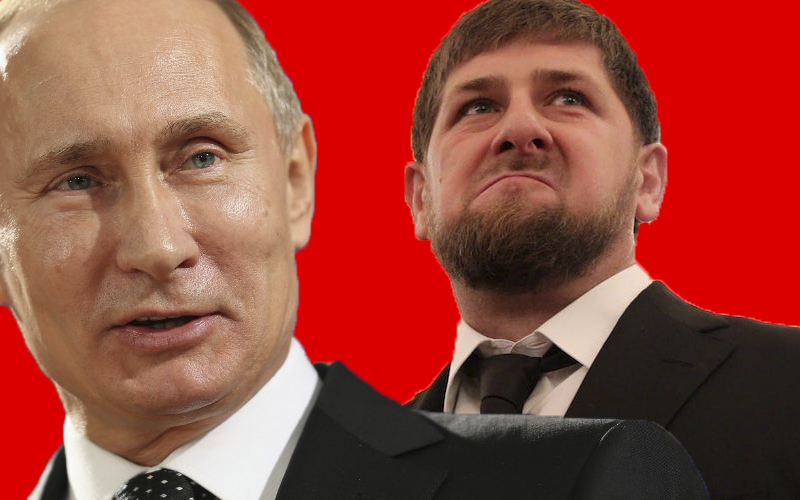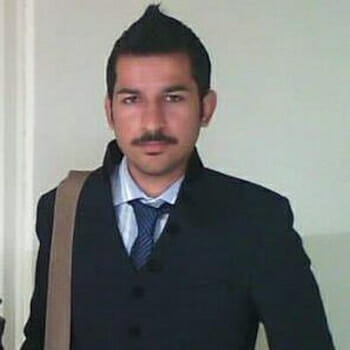
Chechnya’s Black Widows Have Nothing Left to Lose
Chechen female terrorists are commonly known as Black Widows because they have usually lost their husbands, brothers or close relatives in one of the two Chechen wars that Russia fought against Islamist rebels since 1994. They are motivated by resentment and grief for their loved ones which motivates them to seek revenge against their oppressors in the form of suicide terrorist activities. The majority of these women are poorly educated which is a driving force behind Islamist extremist’s recruitment. On the other hand, a number of female terrorists accuse Russian forces of using overly brutal tactics against the civilian population, including women, in order to flush out rebel fighters. It is a counterproductive strategy that only serves to radicalize people.
The first Black Widow attack took place in early 2000, when Khava Baraeva drove a truck filled with explosives into a building housing Russian Special Forces in Chechnya. In the last 12 years, 46 women have turned themselves into suicide bombs in Russia and have carried out 26 terrorist attacks. Most of the bombers were from Chechnya and Dagestan. Studies of Chechen female suicide bombers have found that these women have experienced serious personal trauma. As the term Black Widow would suggest, many have lost everyone and have nothing left behind to care about over the last two decades of continuous violence and brutality.
All individuals, including males, have experienced deep personal traumatization, and evidence of symptoms of post-traumatic stress disorder are commonly present in the survey. The demographic description and psycho-social motivators for embarking on this devastating path plays a significant role for female terrorists before killing themselves. It further leads to other motivating factors like nationalistic conflicts and less knowledge about Islam. There are wide divisions and factions within Chechens which totally split the mainstream agendas of violence. These includes secular-nationalists particularly Salafi Muslims (the ‘indigenous’ sect of Islam in Chechnya). On the other hand, there is a minority of Salafist preaching radicals led by figures like Shamil Basayev, Movladi Udugov, and Zelimkhan Yandarbiyev. These two factions play a significant role in the destruction of Russian land.
For the young women, the suicide missions are not especially a question of religion. However, they understand the revival of Islam in Chechnya as a critical element in the identity-building of the torn region. For them, not to allow them to practice Islam freely is understood as the ultimate attack against who they are, or who they are trying to be: faithful young Muslims.
Before the fall of communism, the practice of Islam was limited by Russia as they actively promoted within Chechnya, the Russian language and other Russian cultural elements. It was inevitable that after the collapse of communism, a domestic revolution would take place in Chechnya. With the collapse of the Soviet Union in 1991, Islam became a binding factor. This collapse caused a wave of national awareness among all the peoples of the former Soviet Union. Because Islam represented a clear separation between the Northern Caucasus and the rest of Russia, it is no surprise that Islam is an important part of the awakening nationalist feeling among the Chechens. This period is also known as the Islamic Renaissance of the Northern Caucasus. Islam especially the Wahhabism ideology developed deep roots in women terrorists to commit suicide in order to meet their parents and loved ones in paradise.
The magnitude of the Chechen separatist movement cultivated sympathy from many ethnic, religious and gender groups. Chechen separatists have sought to establish the region as its own sovereign state as it was briefly between 1917 to 1922 and 1991 to 1994. Most scholars maintain that their will for separatism has been predominantly driven by ethno-nationalism. In recent years however, many argue that Chechen separatism has now somewhat been co-opted by the worldwide jihadist movement. Conversely, there is increasing discourse that claims that Chechen terrorism is just part of a wider jihadi movement and has become the international Islamic terror network’s frontier on Russia.
Russian leader Putin exploited 9/11 to assert that “terrorism equals separatism.” President Putin justified the actions of Russian troops during the second Chechen war by portraying it as a war on terror. This further sparked motivation for Chechens to develop a strong association between Chechen separatism and Islamic extremism. The Chechen separatist moment’s roots lie in Russia’s historical mistreatment of the Chechen people. This mistreatment was in the form of brutal conquests, multiple deportations and the Russian Government’s negligence and finally, the igniting of two wars and a continued insurgency within the Caucasus region. Russia’s difficulties in Chechnya have also spread to neighboring areas of the North Caucasus, says Elizabeth Fuller, an expert on the region with RFE/RL in Prague. “You can’t talk anymore about the purely Chechen separatist movement. This may reinvigorate the Chechen movement, increasing the number of fighters drawn to the cause and widening the scope of the conflict. Fuller also talks about a “generational change” among Chechen fighters. “You have a whole new group of young commanders and black widows and we have no idea who they are or what sort of people they are.”
There are a variety of factors that inspire black widows to continue their activities. Every single factor has significant importance: nationalism, religion, sociopolitical and ethnicity culturalism, personal life experiences and much more to be enlisted. As Ramzan Kadyrov, head of the Russian backed Chechen government said in an interview to Chechen TV on May 11, 2005, Chechen women are the most dangerous for national security because they have carried out the riskiest operations. If the current trend continues, Chechen female bombers will continue to be a grave threat to Russian national security.

